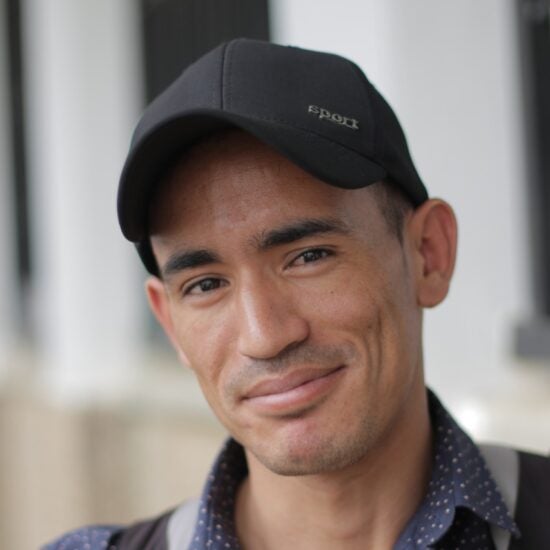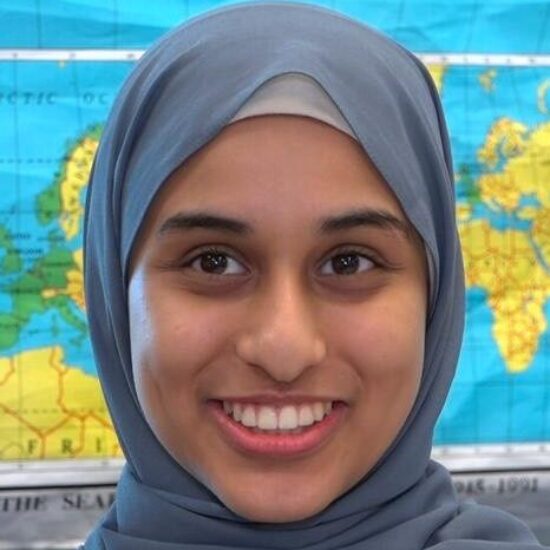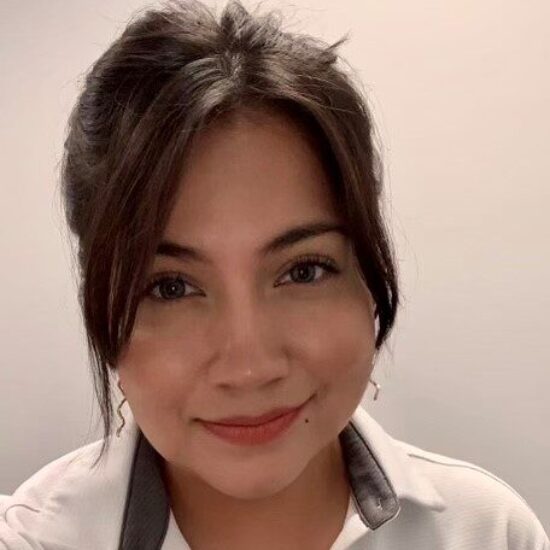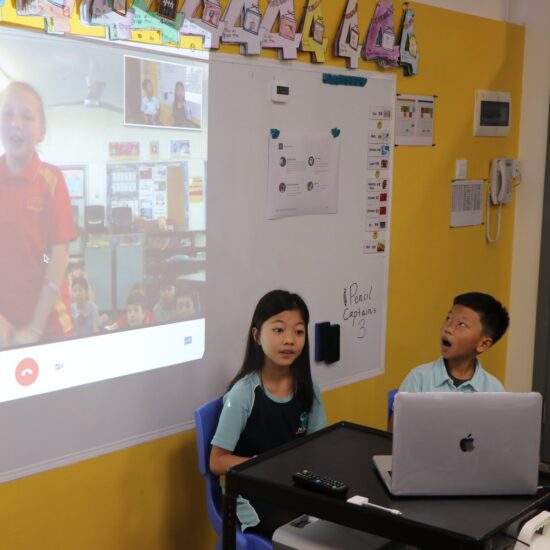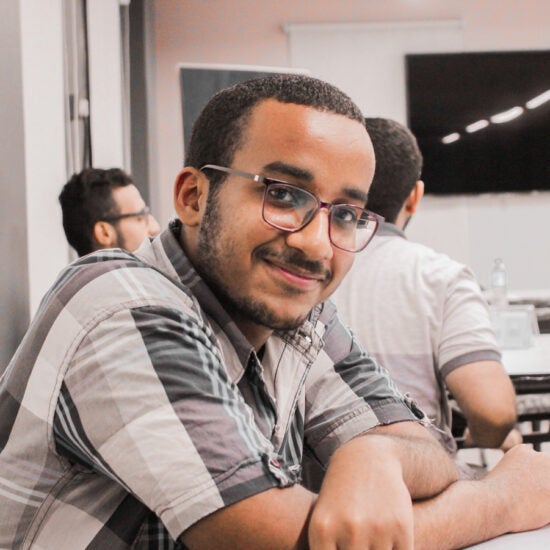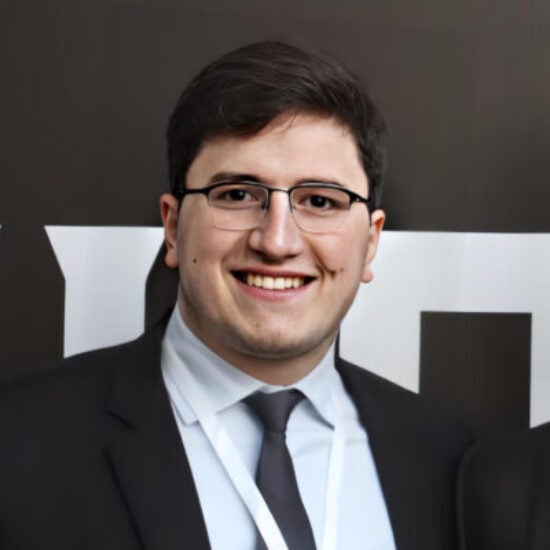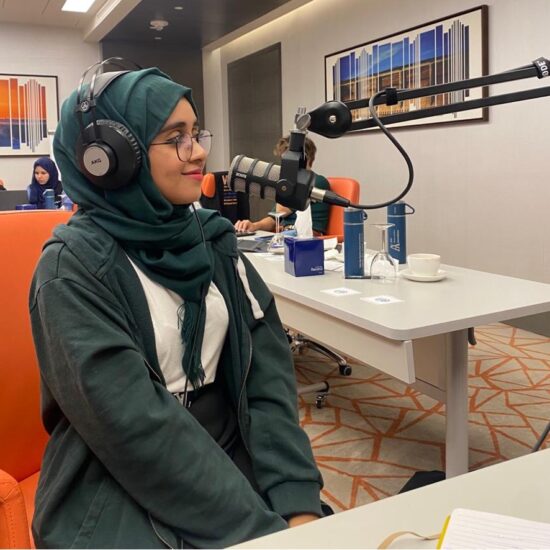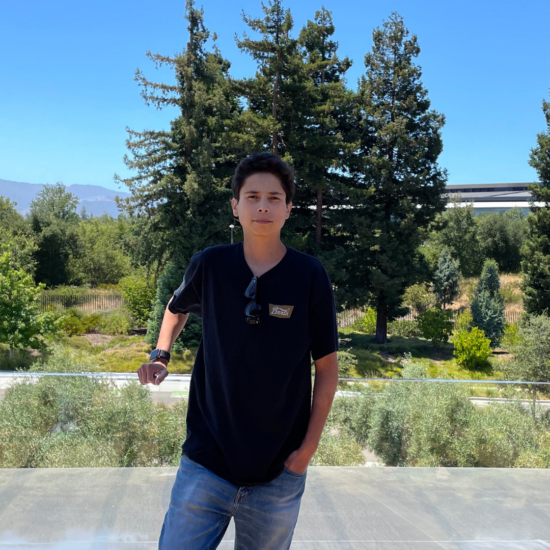Al-Quds University
A total of seven universities have participated in the Palestinian American Youth Civic Engagement (PAYCE) virtual exchange program, which includes; Drake University, University of New Hampshire, University of Hartford, Florida Agricultural and Mechanical University, Al-Quds University, Al-Quds Bard, and An-Najah National University. Through workshops and virtual exchanges in the classroom, both Palestinian and American students discussed civic engagement.
Before joining the Palestinian American Youth Civic Engagement (PAYCE), Hannah Curran, a student at the University of New Hampshire, had some knowledge about the Palestinian Territories, but had never visited the region or met any Palestinians before. “I’ve always been interested in learning about the Middle East,” she said. “I knew very little about the region other than the conflicts that are portrayed in the media, I needed to see for myself.”
Much of the PAYCE program is conducted through virtual exchange, which provides students the opportunity to learn and share perspectives with peers from across the global. Through virtual exchange, PAYCE aims to motivate students to become more proactive participants in the political processes in their countries, including speaking about contemporary issues, voting during elections, and more. “The virtual exchanges were an excellent chance to learn about the ideas and thoughts of Americans students, especially when discussing the topic of minority rights,” said Yasmeen Abed, a PAYCE participant.
“The virtual exchanges were an excellent chance to learn about the ideas and thoughts of Americans students, especially when discussing the topic of minority rights."
Yasmeen Abed, Participant, PAYCE
PAYCE also includes an in-person opportunity through workshops, which brings together Palestinian and American students that are selected as fellows to participate in the workshop, building upon their enthusiasm to learn about youth civic engagement in other countries.
During a two-week workshop hosted by the Princess Sumaya University of Technology in Amman, Jordan, Palestinian and American fellows learned about how young adults in Amman contribute to civic engagement. They explored various aspects of civic engagement, including civil disobedience, women empowerment, and changing environmental policy. Likewise, during a workshop in Des Moines, Iowa, fellows observed how community organizations in the area tackle local issues pertaining to immigrant welfare, homelessness, and interfaith awareness.
As part of the workshops, fellows were tasked to share their own experiences of civic engagement. “I was surprised to see that despite living in different parts of the world, the Palestinian and American fellows have a lot in common in regard to issues that young adults face,” said PAYCE workshop coordinator Omar Husseini.
"I was surprised to see that despite living in different parts of the world, the Palestinian and American fellows have a lot in common in regard to issues that young adults face."
Omar Husseini, Workshop Coordinator, PAYCE
After each workshop, fellows returned to their homes with valuable technical skills and a new perspective on what civic engagement means from a Palestinian and American lens. During the semester that followed their workshop, fellows assisted their peers in dialogues with their counterparts overseas through virtual exchanges. Through the virtual exchange, students collaborated on developing podcasts that shared their experiences related to civic engagement. The impact of virtual exchange is a vital aspect of the program, taking advantage of the available technology to close the geographic gap between Palestinian and American students “One thing I can say for sure is that though PAYCE I was able to get a better perspective of what civic engagement in America entails,” said Aya Khatib, a PAYCE fellow.


